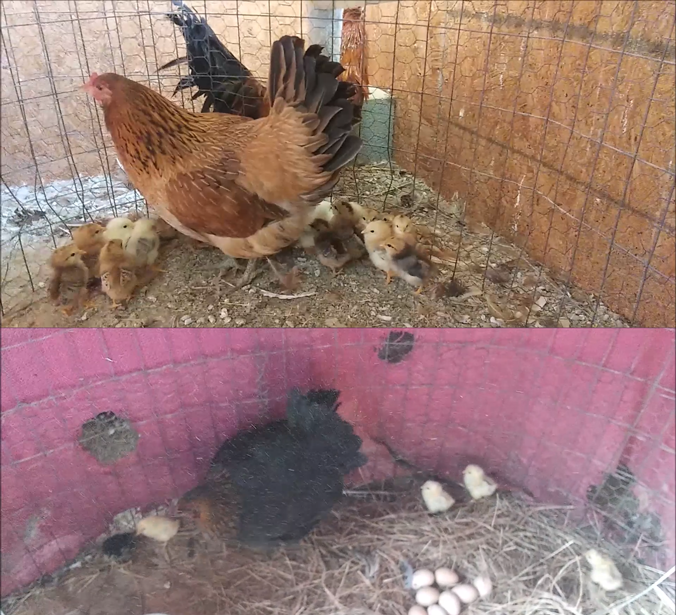Song of Solomon 5:16 – “His mouth is most sweet: yea, he is altogether lovely. This is my beloved, and this is my friend, O daughters of Jerusalem.“
In Song of Solomon, the Bride, or Church of the Lord Jesus Christ, declares that He is “altogether lovely” to her.
But what does that look like?
In his excellent treatise on Song of Solomon 4:16-6:3 called “Bowels Opened” (bowels being inner-most self, often referencing deep compassions for others), Puritan Richard Sibbes gives his view on what it means for Jesus to be altogether lovely to a Christian.
You can read this section of the treatise here, or listen to the sermon with this part in it here, or listen to the entire treatise on our audio book page.
Continuing from Part 1, here is from Richard Sibbes, Part 2:
‘He is altogether lovely.’
Use 4. And let us make an use of trial, whether he be thus lovely to us, or no. We may see hence whether we love Christ or no. We may judge of our love by our esteem.
- How do we value Christ? what price doth the church set on him? ‘He is the chief of ten thousand.’ What place, then, should he have in our hearts? If he be the chief of ten thousand, let us rather offend ten thousand than offend him.
Let us say, with David, ‘Whom have I in heaven but thee?’ etc., Ps. 73:25. And when the soul can say to Christ, or any that is Christ’s (for I speak of him in the latitude of his truths, promises, sacraments, and communion with his children), ‘What have I in heaven but thee?’ etc., then it is in a happy condition.
If these things have the same place in our esteem, as they have in respect of their own worth, then we may say truly, without hypocrisy, ‘He is altogether lovely to us,’ that we truly love him. - In the next place, are we ready to suffer for Christ? We see the church here endures anything for Christ. She was misused of the watchmen. They scorned her, and her ‘veil is taken away,’ yet notwithstanding, she loves Christ still. Do we stand ready disposed to suffer for Christ? of the world to be disgraced and censured? and yet are we resolved not to give over? Nay, do we love Christ the more, and stick to his truth the faster? Certainly where the love of Christ is, there is a spirit of fortitude, as we may see in the church here, who is not discouraged from Christ by any means. He is still the chief of ten thousand.
When she was wronged for seeking after him, yet he was altogether lovely. Whereas, on the other hand, you have some that, for frowns of greatness, fear of loss, or for hope of rising, will warp their conscience, and do anything. Where now is love to Christ and to religion? He that loves Christ, loves him the more for his cross, as the Holy Ghost hath recorded of some, that they ‘rejoiced that they were thought worthy to suffer for Christ,’ Acts 5:41.
So the more we suffer for him, the more dear he will be to us. For indeed he does present himself in love and comfort most, to those that suffer for his sake; therefore their love is increased. - Again, where love is, there it enlarges the heart, which being enlarged, enlarges the tongue also. The church hath never enough of commending Christ, and of setting out his praise. The tongue is loosed, because the heart is loosed. Love will alter a man’s disposition.
As we see in experience, a man base of nature, love will make him liberal; he that is tongue-tied, it will make him eloquent. Let a man love Christ, and though before he could not speak a word in the commendation of Christ, and for a good cause, yet, I say, if the love of Christ be in him, you shall have him speak and labour earnestly in the praises of God. This hot affection, this heavenly fire, will so mould and alter him, that he shall be clean another man.
As we see in the church here, after that there was kindled a spirit of love in her, she cannot have done with Christ. When she had spoke what she could, she adds, ‘He is altogether lovely.’ Those that cannot speak of Christ, or for Christ, with large hearts in defence of good causes, but are tongue-tied and cold in their affections, where is their love?
Put any worldly man to a worldly theme that he is exercised in, and speaks of daily, he has wit and words at will; but put him to a theme of piety, you lose him: he is out of his theme, and out of his element. But ’tis not so with those that have ever felt the love of God in Christ. They have large affections. How full is Saint Paul! He cannot speak of Christ, but he is in the height, breadth, length, and depth of the love of God in Christ, and the knowledge of God above all knowledge. Thus we may discern the truth of our love by the expressions of it here as in the church. - Again, the church here is never content till she find Christ; whatsoever she had, nothing contents her. She wanted [lacked] her beloved. As we see here, she goes up and down inquisitive after him till she find him.
So it is with a Christian. If he have lost, by his own fault, his former communion with Christ, he will not rest nor be satisfied; but searches here and there in the use of this and that means. He runs through all God’s ordinances and means till he find Christ. Nothing in the world will content him, neither honour, riches, place, or friends, till he find that which he once enjoyed, but hath now for a season lost, the comfort and assurance of God’s love in Christ.
Now, if we can sit down with other things, and can want [lack] Christ and the assurance of salvation, that sweet report of the Spirit that we are his, and yet be contented well enough, here is an ill sign that a man is in an ill condition. The church was not so disposed here. She was never quiet, nor gives over her inquisition and speaking of Christ (that by speaking of the object she might warm her affections), until at the last she meets with Christ. These and the like signs there are of the truth of the love of Christ.
But where there is a flaming love of Christ there is this degree further, a desire of the appearance of Christ, a desire of his presence. For if Christ be so lovely in his ordinances, if we find such sweetness in the word and sacraments, in the communion of saints, in the motions of the Spirit, what is the sweetness, think you, which the souls in heaven enjoy, where they see Christ face to face, see him as he is? Hereupon the spouse saith, ‘Let him kiss me with the kisses of his mouth.’ Oh, that I might live in his presence. This is the desire of a Christian soul when the flame of love is kindled in any strength, ‘Oh, that I might see him.’
And therefore it longs even for death; for as far as a man is spiritual, he desires to be dissolved and to be with Christ; as Simeon, when he saw him, though in his abasement, ‘Now I have enough; let thy servant depart in peace, for mine eyes have seen thy salvation,’ Luke 2:30.
The presence of Christ, though it were but in the womb, when Mary, the mother of Christ, came to Elizabeth, it caused the babe that was in her womb to spring. Such comfort there is in the presence of Christ, though he be but in the womb, as it made John to spring.
What, then, shall be his presence in heaven? How would it make the heart spring there, think you? For that which is most lovely in Christ is to come. Therefore the saints that have any degree of grace in the New Testament, they are set out by this description. They were such as loved the appearing of our Lord Jesus Christ. How can it be otherwise? If they love Christ, they love the appearing of Christ, wherein we shall be made lovely, as he is lovely.
Here we are not ‘altogether lovely;’ for we have many dregs of sin, many infirmities and stains. Shall we not, then, desire that time wherein, as he is ‘altogether lovely,’ so shall we be made a fit spouse for so glorious a husband?
Continue on to Part 3!
— David





